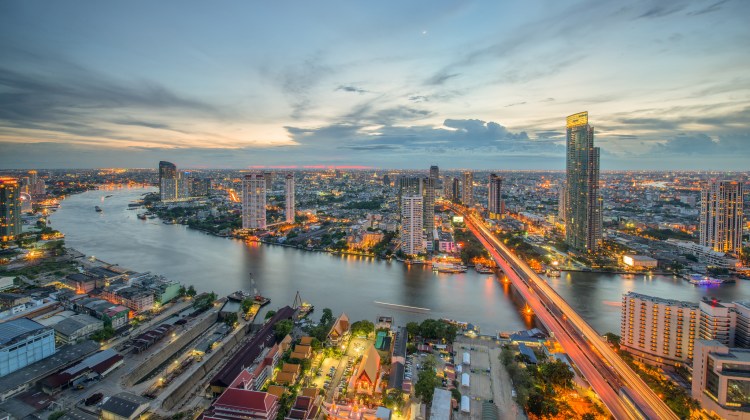From the outside, Thailand looks like a messy, dangerous place under a military cabal. But at least one developer in that country didn’t leave after a coup d’état in 2014 ousted a democratically elected government that many Thai people considered corrupt.
Earlier this week, I reported that Playlab chief executive officer Jakob Lykkegaard Pedersen said that the Thai coup was great for mobile gaming during a presentation at the Casual Connect Conference in Singapore. I later asked him for more insights about this. Pedersen has spent the last seven years in Thailand, and he didn’t consider moving during the coup or the following military junta that continues to run the nation’s government.
Pedersen wants to continue making games for Thailand’s fast-growing segment of the worldwide $36.9 billion mobile gaming market. He also thinks that other companies should get into this space, and that’s what prompted him to say that the coup is great. An independent website called Blognone in Thailand picked up those comments from my story, and that went viral. And after a few minutes of insisting that the coup doesn’t affect him or most people, Pedersen did admit that he’s slightly concerned about how the government might respond to his comments.
“My friend is joking that I might not be able to get back into Thailand,” he said. “There are things like this in Thailand that can blow up. There was a girl whose friend was an activist who wrote to her on Facebook and said ‘tking’ — which is just ‘I’m OK’ — and she just got arrested.”
For some, this is evidence that the junta is solidifying its power in preparation for a lengthy reign. The military forced through laws recently limiting free speech, and this is frightening some people, according to a Voice of America report.
When I asked Pedersen if he had anything to worry about, he seemed uncertain.
“There shouldn’t be. But you never really know,” he said. “The Internet is kind of a new thing, and when you have an old government handling things — they can try to shut you up in the wrong way.”
And Pedersen wasn’t even critical of the military.
Politics in Thailand is messy. This isn’t a simple case of the military removing a government that people loved and wanted to keep. Critics spent months protesting the elected officials before the military stepped in. At the same time, the stated goal of the military is to put reforms into place before handing power over to democratically elected leadership. So, in Thailand, it seems like most people don’t even think about the coup, and Pedesen certainly claimed that was the case.
“We haven’t been affected at all by the military coup,” Pedersen told me in an interview. “I’ve been in Thailand for more than seven years now. All this time, I think the only effect it had on us was that one employee couldn’t get to work one day. Apart from that, nothing.”
Pedersen isn’t an activist or an outspoken critic of either the former government or the current military overlords. But he claims that most people in Thailand don’t feel any negative effects of the junta. Instead, this is something that outsiders are worried about.
“A military coup — especially for global brands — is something they don’t know how to handle,” he said. “In Thailand, we’re not really affected at all. But if you look at Thailand from the outside, you only see what’s on the news. The same thing happens where I’m from in Denmark. When we had problems with the Arab row [over the Danish cartoons about Muhammad], people in Denmark didn’t really care. But from an international point of view, people thought the entirety of Denmark was burning up.”
And all of this was the original point that Pedersen was trying to make by calling the coup a great thing for investment. The country is generally stable, but marketing and other costs are lower because you’re not competing with as many companies.
“I know from my friends in advertising that less people invest in Thailand because they aren’t sure about the future,” he said. “So they put more into Singapore and some of the neighboring countries around it. That keeps advertising costs down.”
Simultaneously, Thailand is growing in terms of market penetration. Thai people are joining sites like Instagram, Twitter, and Foursquare faster than just about any other region. It is also already the second-largest market for Line, which is a Japanese messaging app that is huge for distributing mobile games.
Pedersen, however, does admit that calling the military coup a good thing was a dark joke, but it’s also the reality on the ground for the Thai people. He just wanted to share that with the rest of the world.
“I don’t believe that military junta is a good thing,” he said. “They have cleared a lot of stuff up and that is kinda nice, but I’m looking forward to going back to democracy.”
The path back to an elected government is murky. The government is planning a referendum on a new constitution in August. The Thai people will have to wait and see if that is a firm step toward democracy or not.
Casual Connect arranged for my travel to its event. Our coverage remains fair.
VentureBeat's mission is to be a digital town square for technical decision-makers to gain knowledge about transformative enterprise technology and transact. Learn More

